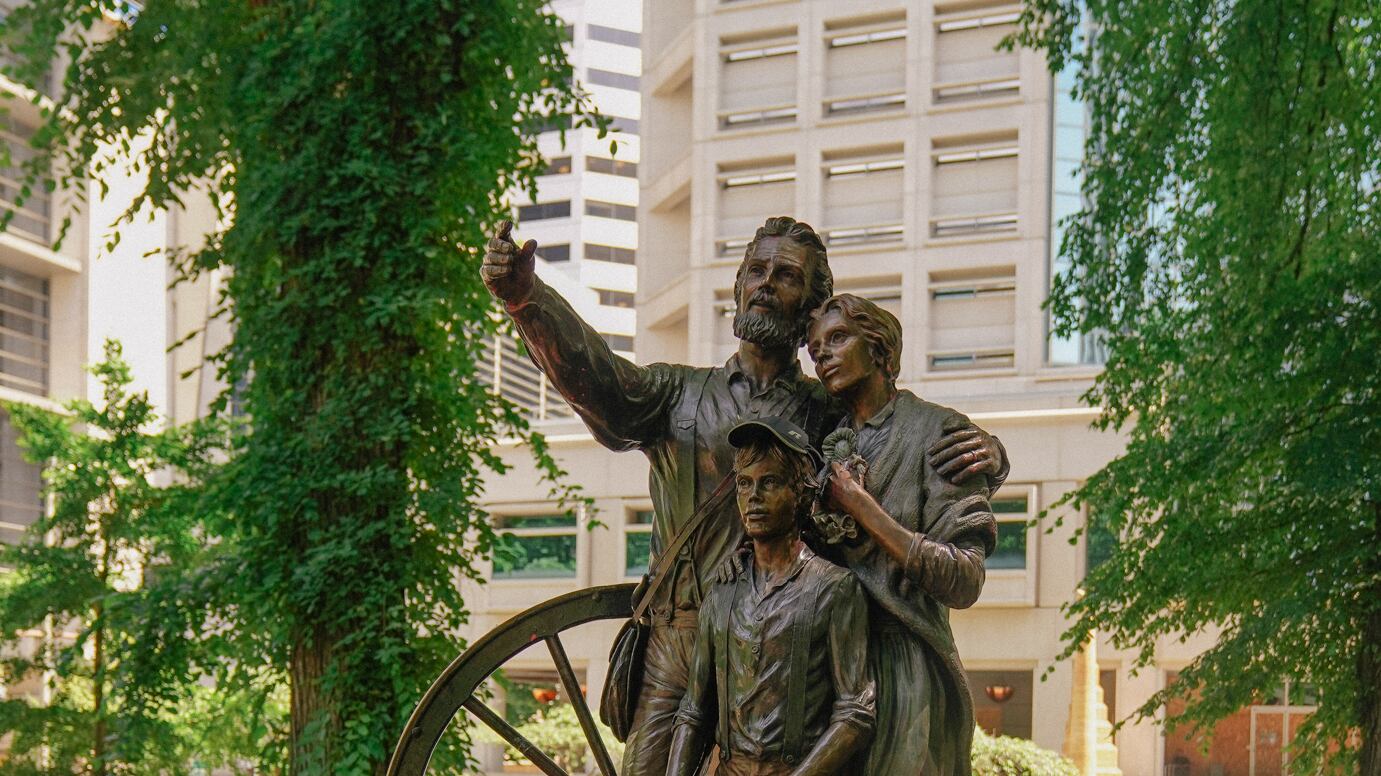I am concerned about the Oregon state song (lyrics attached). The first two lines aren't so bad—although one catches a whiff of colonialism—but lines three and four are doozies. What's your take? —Beth F.
I think I speak for most, if not all, Oregonians when I say: We have a state song?
As it turns out, we do. The winner of a 1920 competition sponsored by the Oregon Society of Composers, "Oregon, My Oregon," was adopted as the state song just seven years later. It begins with the aforementioned colonialism and goes downhill from there:
Land of the Empire Builders,
Land of the Golden West
Conquered and held by free men,
Fairest and the best.
Given that Oregon was founded as a whites-only state—the Black Exclusion Laws of the 1850s weren't officially repealed until 1926—the reference to the state's founders being "fair" and "free men" reads like a racist jab. Meanwhile, boasting about the state being "conquered and held" seems calculated to offend Native Americans. Something for everybody! (We won't even get into the part later in the song where our state gets "blessed by the blood of martyrs.")
If you think I'm reading too much into this, you may not realize just how racist 1920s Oregon was. For example, in the 1922 gubernatorial election, challenger Walter M. Pierce unseated incumbent Ben Olcott in part by seeking and receiving an endorsement from the Ku Klux Klan.
As governor, Pierce posed—on purpose—for newspaper pictures with hooded Klansmen, as did Portland's mayor and chief of police. This was considered normal. Frankly, it would be surprising if something written in this time and place weren't racist.
In any case, Beth, you're not the first to notice the problematic nature of our regional hymn. A bill introduced in the Oregon House in 2017 would have recast the cringiest lines with some more generic "majestic mountains"-type stuff.
That bill died in committee, but a source close to the process told me it will be reintroduced soon. Call me crazy, but I have a weird feeling it might get a fairer hearing this time around.

